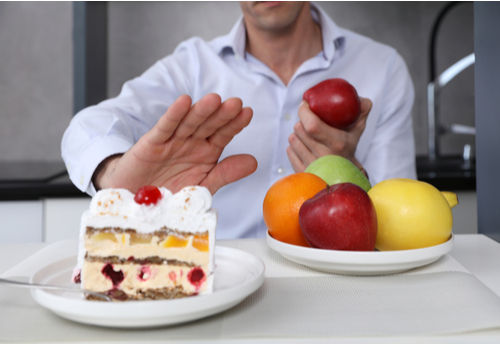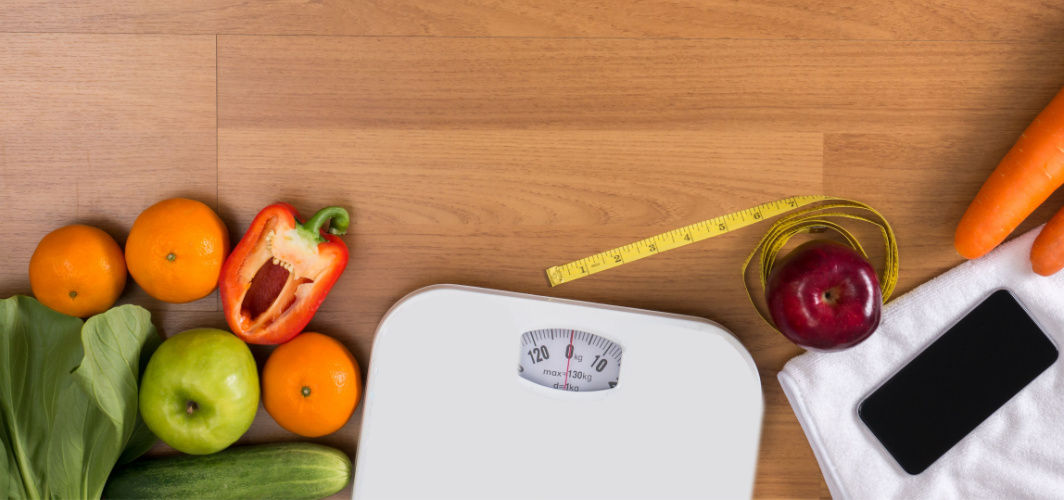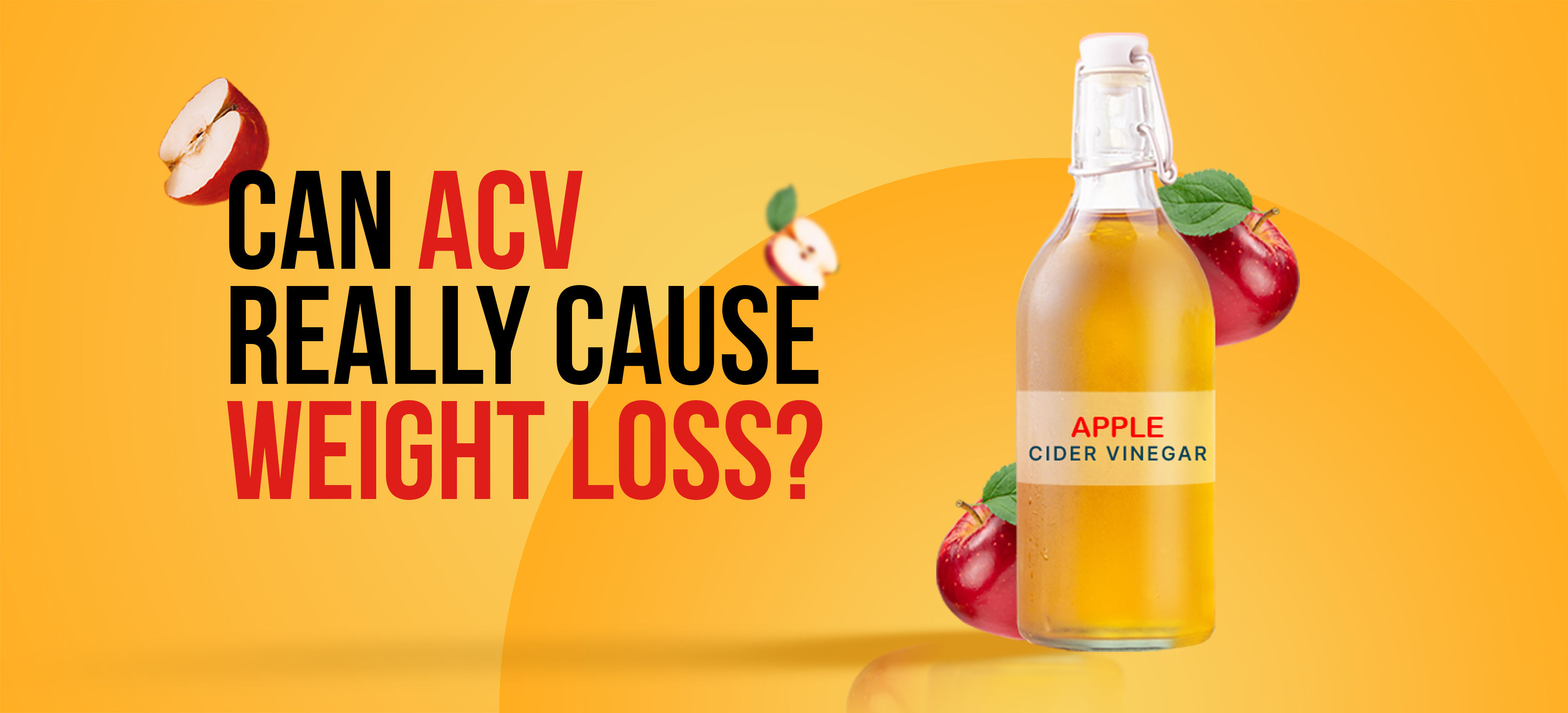Weight Management
Water Can Add To Your Weight: Tips To Reduce Water Weight
4 min read
By Apollo 24|7, Published on - 05 April 2022, Updated on - 23 April 2024
Share this article
1
86 likes

An adult human body contains 60 to 65% of water. While the body mechanism is efficient at keeping this percentage replenished on its own, it does need a healthy diet and sufficient water intake to stay at its optimum efficiency. However, sometimes, the body retains excess water, resulting in overall weight gain.
How is water weight different from fat?
Losing fat weight can take a lot of time, whereas the body’s water weight fluctuates every day, leaving you looking puffy or feeling heavier than usual. You will be amazed to know that one can lose or gain up to 5 pounds of water weight in a day. The most common signs of water weight include:
- Bloating
- Puffy face
- Longer staying indentation on the skin after pressing
- Swollen legs
- Stiff joints
- Chest pain
- Breathlessness
What causes water weight?
Generally, our daily water intake is absorbed by the arteries, veins and tissues in the body. When the same water goes to the spaces between the cells and surrounding fat, the cells and tissues become saturated with water which adds to the body weight. Other factors that may add up to the water weight include:
- Sitting in one position for too long
- Stress
- Long travel time
- Diabetic medication
- Menstruation
- Pregnancy
- Hormonal changes
- Allergies
Some concerning causes of water retentions include:
- Long-term protein deficiency
- Kidney damage
- Inadequate lymphatic system
- Weak heart
- Under strain circulation
Nine sure ways to lose that water weight
There are simple ways to shed that excess weight and maintain a healthy body without much fuss. However, guidance from a physician comes highly recommended for an effective and safe loss. Here is the list of what can help:
1. Hydrate frequently
As a conscious mechanism, the body continuously tries to maintain a healthy balance for optimal functioning. The short supply of water makes the body hold back its reserve of water, leading to excessive water retention. The average healthy frequency of water intake, which is 3.7 litres per day for men and 2.7 litres per day for women, can help you avoid water retention.

2. Cut back on sodium intake
Salt is the richest and most common source of sodium in our diet. The recommended average consumption level of sodium is about 2.4g for an adult. Higher levels of salt consumption can trigger the body to compensate for the balance by retaining more water.
3. Eat well
A healthy body runs on a healthy diet. Knowing what your body requires can be of great help when struggling with water retention. The addition of magnesium & potassium-rich food like bananas, avocados, tomatoes, sweet potatoes, and leafy vegetables can be beneficial along with vitamin B6-rich foods and supplements.
4. Exercise regularly
Exercising deals with water weight issues on multiple levels. It makes the body sweat, which lets the body shed the excess water and also reduces the salt content. Exercising burns the glycogen stores (which otherwise adds up to your weight) and improves blood circulation, especially in the feet and the legs. The body also shifts a lot of water into the muscles during exercise to help recover the damaged muscles, thereby utilizing the retained water.
Recommended Reading: 7 Reasons Why You’re Not Losing Weight Even After Exercise And Diet
5. Sleep more
A night’s good 7 to 9 hours of sleep can help in relaxing the sympathetic renal nerves (in the kidneys), which help in regulating sodium and water levels in the body.

6. Stress less
Stress buildup can increase the level of cortisol (the stress hormone), which can further trigger an imbalance in the levels of ADH (antidiuretic hormone). ADH regulates the reabsorption of water through the kidneys, which if imbalanced, can affect one's health adversely.
7. Frequent bathroom visits
Urination helps the body remove excess water and sodium, resulting in reduced water retention. To help with water retention and related swelling and puffiness, doctors often prescribe diuretic pills or water pills.
8. Increase electrolytes intake
Electrolytes are a quick and effective way to replenish water and sodium in the body. Low electrolytes in the body can cause the body to retain more water, thereby increasing the water weight.
9. Reduce refined carbs in your diet
The unused carbs in the body are stored in the liver and the muscles as glycogen molecules. Each molecule of glycogen is attached to three molecules of water, leading to extra water retention in the body. Cut down on carbs and increase the content of fibrous foods in the diet.

Your body needs constant care, therefore, it is wise to pay attention to any unusual changes such as water retention. While water weight is barely a matter of concern in the majority of the cases, if it causes discomfort while breathing, sluggish heart rate, or lethargy, it may indicate underlying health issues. A timely consultation with your doctor can help you identify the symptoms, and causes of the retention and guide you to effective treatment.
Wish to consult a doctor?
Weight Management
Leave Comment
Recommended for you

Weight Management
7 Most-Popular Myths On Weight Loss You Should Stop Believing In Right Away!
Skipping breakfast, cutting down carbs and consuming supplements won’t help you to reduce weight. This article debunks all myths related to weight loss.

Weight Management
How To Choose The Right Diet For Weight Loss?
When it comes to losing weight, it’s essential to carefully choose a diet that works best for you. The right diet can not only help you lose weight but also improve your overall well-being.

Weight Management
Have You Tried Apple Cider Vinegar For Weight Loss?
Apple cider vinegar offers multiple health benefits, including weight loss. Researchers attribute the weight loss benefits to acetic acid, the main active compound in ACV.
Subscribe
Sign up for our free Health Library Daily Newsletter
Get doctor-approved health tips, news, and more.
Recommended for you

Weight Management
7 Most-Popular Myths On Weight Loss You Should Stop Believing In Right Away!
Skipping breakfast, cutting down carbs and consuming supplements won’t help you to reduce weight. This article debunks all myths related to weight loss.

Weight Management
How To Choose The Right Diet For Weight Loss?
When it comes to losing weight, it’s essential to carefully choose a diet that works best for you. The right diet can not only help you lose weight but also improve your overall well-being.

Weight Management
Have You Tried Apple Cider Vinegar For Weight Loss?
Apple cider vinegar offers multiple health benefits, including weight loss. Researchers attribute the weight loss benefits to acetic acid, the main active compound in ACV.